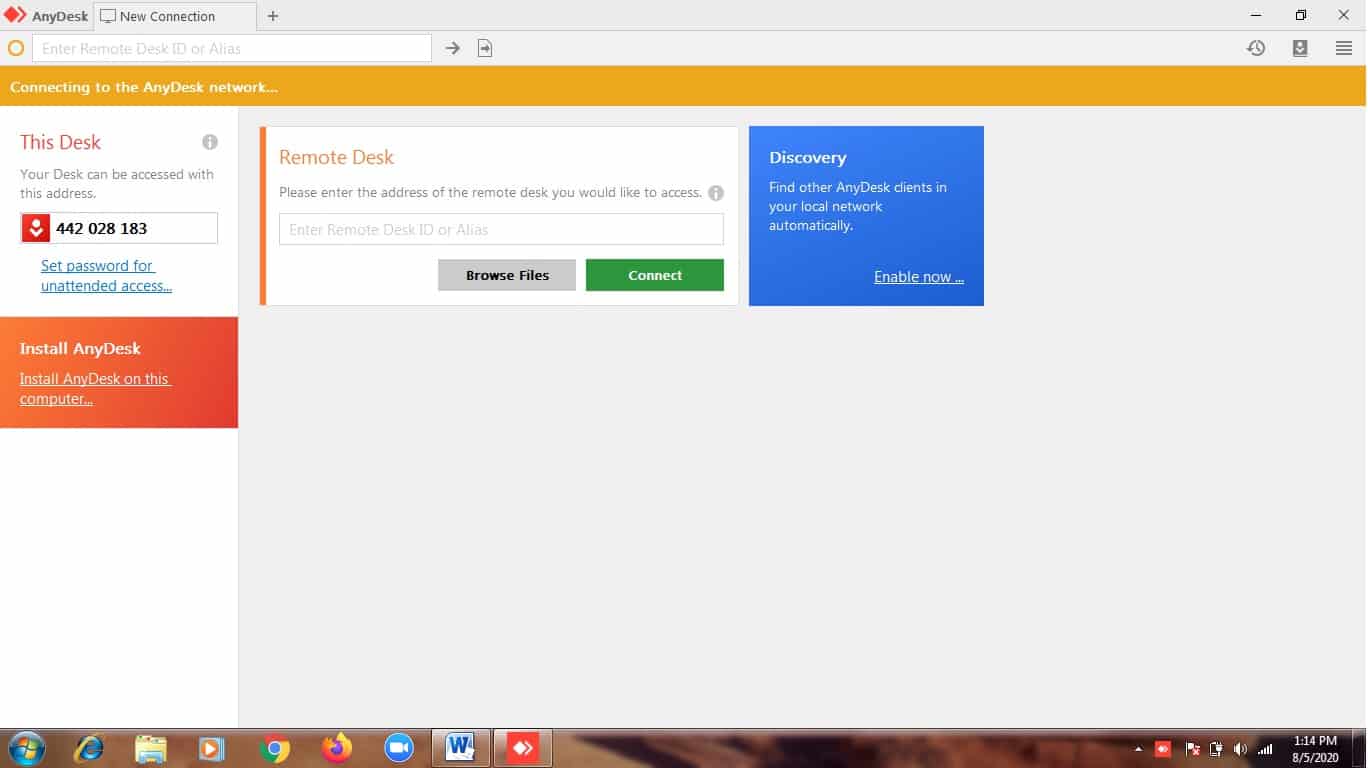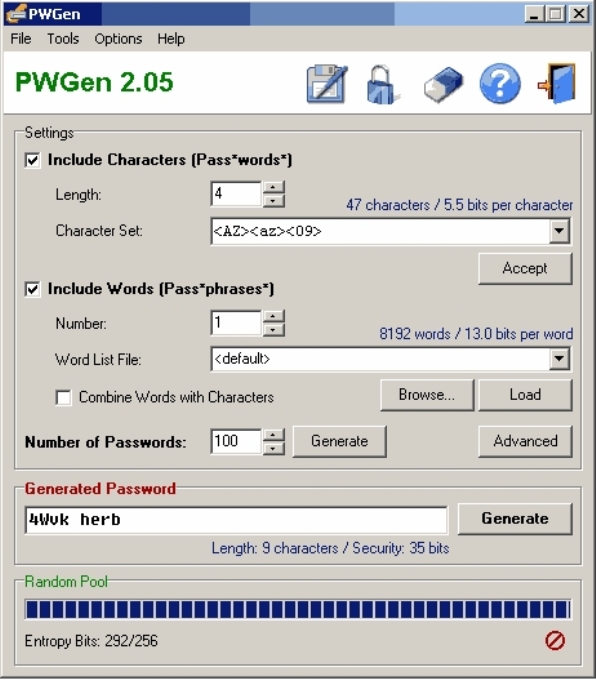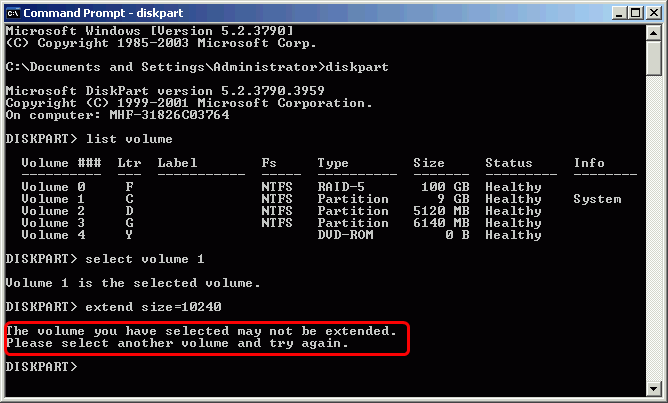

- Pwgen command line windows install#
- Pwgen command line windows generator#
- Pwgen command line windows full#
- Pwgen command line windows portable#
Pwgen command line windows install#
It seems to be available out-of-the-box at Debian and Ubuntu ( apt-get install pgloader works on jammy at least), for EL it’s available through third-party repositories. The recommended way to migrate the data from SQLite to PostgreSQL seems to be through the tool PgLoader. sudo usermod -aG homeassistant $LOGNAME or vi /etc/group, then log in again and run groups to verify you’re in the homeassistant group) or simply change the ownership ( sudo chown $LOGNAME home-assistant_v2.db - homeassistant should anyway still have permissions through the group) Ensure you have the right software installed To get read (and write) access to the file you may either add yourself to the homeassistant group (i.e. rw-rw- 1 homeassistant homeassistant 9349550080 Mar 16 12:15 home-assistant_v2.db

Pwgen command line windows full#
Probably the file has owner and group homeassistant, and probably the mode is 0660, giving both the owner and the group full access to the file: Give yourself read permissions to the file. If nothing else works, then locate home-assistant_v2.db or find / -name 'home-assistant*.db'. Perhaps it’s in /etc/homeassistant or /var/lib/hass. Check same directory as the configuration.yaml-file. The location may vary dependent on your environment and installation. The SQLite database is located in a file with (as of 2023) file name home-assistant_v2.db. Preparations Locate the database file and fix permissions My migration job (and this blog post) is heavily based on the latter. on a small SD-card on a raspberry pi, but you’re not quite ready to drop the data. Perhaps the recorded data no longer fits i.e. (It’s also said that TimescaleDB, a fork of PostgreSQL specially optimized for this kind of workload, performs even better). Performance - PG is said to perform better when having massive amounts of old archived data.

For the database I have another backup regime. I like to have the configuration to be backed up in a git-repo without having it cluttered with data. I believe in separation of data and configuration. Doing it in two steps reduced the risks and made the rollback path easier. I was moving my HomeAssistant from one physical hardware to another. It’s just that I happened to have a PostgreSQL server running, and I happen to like PostgreSQL too :-) But here are some better reasons: I have described quite some corner cases below, but been through only a few of them myself. The blog post was written after doing the migration, that increases the risk of there being mistakes in the text. I assume you have shell access and sudo access to the PostgreSQL server - but if rewriting the commands a bit it should be possible to complete the migration without. I assume you have some knowledge of shell commands and that you’re able to find the relevant configuration files both in Home Assistant and in PostgreSQL. While I believe it should be possible to do a “hot” migration without data loss, this is outside the scope of this post. I will assume that it’s acceptable with some hours without recording statistics.

Installation and configuration of a PostgreSQL server is outside the scope of this post.
Pwgen command line windows generator#
Sordum Random Password Generator is displayed via a minimalist interface that allows efficient password generation and simple copying of the newly created password.I recently migrated my Home Assistant from SQLite to PostgreSQL and found that the top Google hits gave me broken instructions. Also, you can select the length of the password all the way up to 128 characters. You can set the parameters for your password creation by choosing what letters, symbols, or numbers are used by simply checking/unchecking the appropriate option.
Pwgen command line windows portable#
Sordum Random Password Generator is a portable utility that will help you to generate unique random passwords utilizing the full spectrum of symbols, alpha (both upper and lowercase), and numerical.


 0 kommentar(er)
0 kommentar(er)
